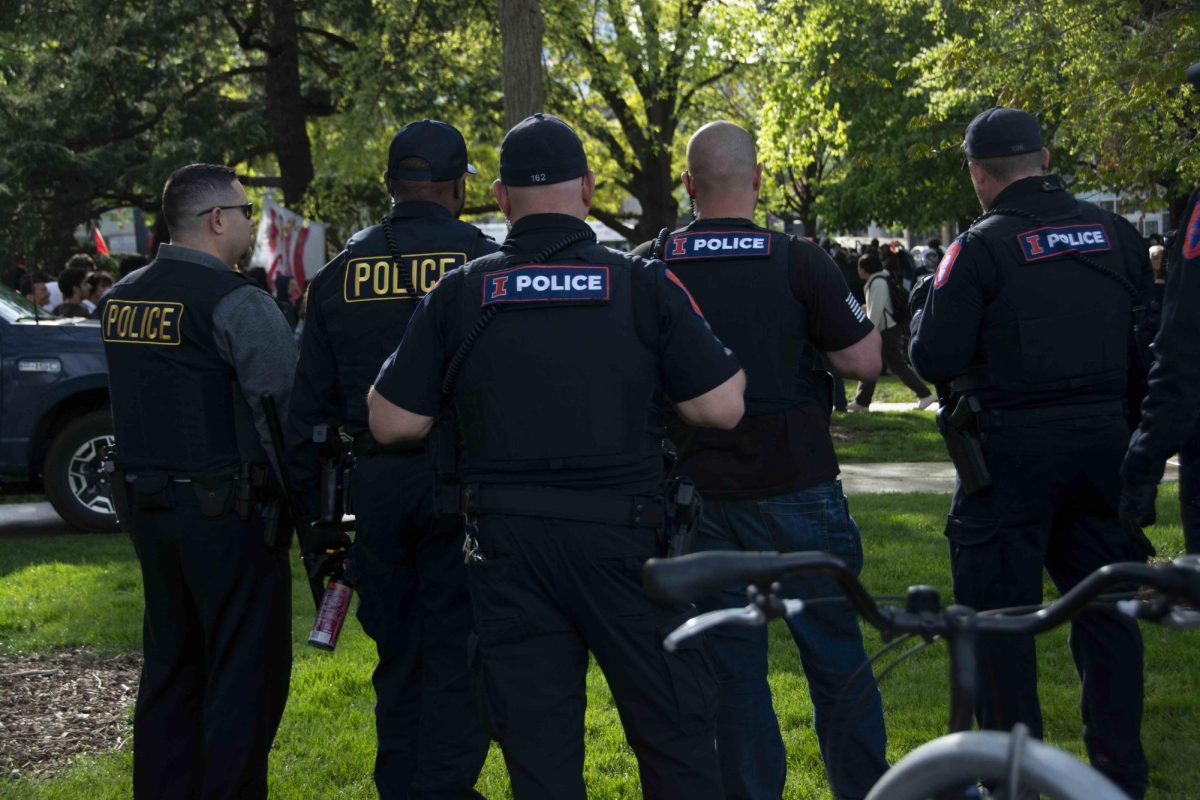In 2007, approximately 575,363 metric tons of greenhouse gas emissions were released into the atmosphere by the Urbana community, according to the most recent statistics of the city website. This number is causing Urbana leaders to make a change.
Urbana Mayor Laurel Prussing joined forces with over 800 mayors around the world by signing the U.S. Mayors Climate Protection Agreement that same year. As one of the cities in the agreement, Urbana is working toward reducing greenhouse gas emissions from the 2007 baseline by 25 percent by 2020.
In response to the agreement, a seven-member volunteer commission, the Sustainability Advisory Commission (SAC) was formed in 2008, to advise the mayor and city council on policies and ways to improve greenhouse gas emissions.
This year, the SAC accomplished its first goal toward reducing emissions; providing an assessment of Urbana’s energy usage across five sectors: residential, commercial, industrial, transportation and waste.
The assessment measures equivalent carbon dioxide — a unit for measuring greenhouse gases emissions — by metric ton, and lists the amounts used by various contributors such as electricity, natural gas, paper products and others.
Get The Daily Illini in your inbox!
The SAC ultimately hopes to create a “Climate Action Plan,” which will consist of strategies the community can use to reduce greenhouse emissions.
“One of our strategies is to provide resources to the citizens and residents to lower their energy usage,” said Anna Hochhalter, Community Development Associate of SAC.
The first step for a household to determine its energy usage is by conducting a home audit.
The City of Urbana received $185,200 in American Recovery and Reinvestment Act Funds in the form of an Energy Efficiency and Conservation Black Grant, which is being used to help cover at least half the cost of a home energy audit that is conducted as part of Ameren’s Act On Energy Program. A home energy audit evaluates factors that impact a home’s energy use, such as the heating and cooling systems, drafty windows and doors and insulation.
“The average home energy audit could cost anywhere from $300 to $400,” said Mike Kennedy, owner of Kennedy Builders in Champaign.
Kennedy, who has over 12 years of experience as a home-builder, said a home audit is not necessarily a list of “repairs,” but is a way to increase energy efficiency in a home.
While details are still being negotiated, the grant money will be used to assist residents in receiving energy audits for their homes as well as assistance with retrofits that will reduce the home’s energy usage, Hochhalter said.
Prussing said she strongly believes Urbana is already ahead of a lot of other cities in terms of energy efficiency, partly because most of the residents in the community bike, walk and use public transportation.
The writing of the Climate Action Plan itself is currently on hold until a new SAC commissioner is named. The SAC hopes to fill the position by Labor Day.
Hochhalter said the SAC will be conducting surveys at the Farmers Market in July and welcoming suggestions from the public to think up strategies to help meet the city’s goal.
“It’s not easy work, but it is work worth doing,” Hochhalter said.




